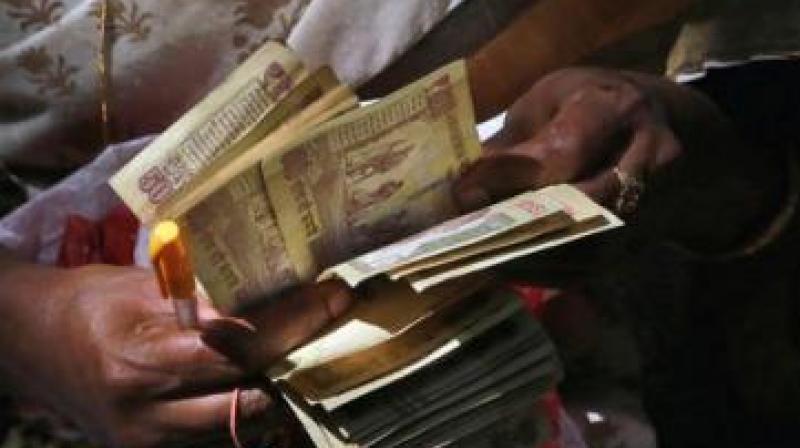Notes ban to spur economic activity: Govt
Narendra Modi while announcing the note ban on November 8, 2016 had said it would help curb black money.

New Delhi: The government's demonetisation move is set to augment the economic growth as interest rates have come down as a result of increased deposits in banks, Parliament was informed today.
It is noteworthy that the government is being targeted constantly from across the quarters for nullifying old Rs 500/1,000 notes from circulation in November, contending it would impact the economy negatively as India is a cash dominant market.
"After demonetisation, more deposits came into the banking system," minister of state for finance Santosh Kumar Gangwar said in a written reply to the Rajya Sabha. "This in turn leads to increasing the demand for loans in general and housing loans in particular as well as credit flow to micro, small and medium enterprises which will spur economic activity and generate employment opportunities," he said.
Bulk of India's transactions happen in cash than through technical/electronic means and banned notes formed as much as 86 per cent of cash currency in circulation. Prime Minister Narendra Modi while announcing the note ban on November 8, 2016 had said it would help curb black money, counter fake currency and put a plug to terror financing.
This required people to deposit their holdings in banned currencies to their bank accounts, resulting in flooding of huge cash into banks.
Gangwar said this helped banks reduce their lending rates significantly, as cost of deposits came down. India's chief statistician T C A Anant while estimating GDP for December quarter at 7 per cent, during which demonetisation was exercised, said it had minimal impact on economic growth. On the other hand, there are many economists and experts who have lauded demonetisation saying it will help clean the system.

